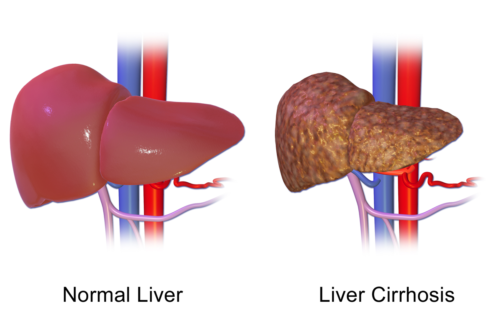Understanding Hepatitis B and the Importance of Early Treatment
Hepatitis B is a viral infection that primarily affects the liver, caused by the hepatitis B virus (HBV). It can lead to both acute and chronic liver disease and significantly impact a person's health and quality of life. In this comprehensive guide, we will delve into the various aspects of Hepatitis B treatment, including effective strategies, medications, and lifestyle changes that can help manage the condition.
Understanding Hepatitis B: Hepatitis B is classified into two types: acute and chronic. Acute Hepatitis B is a short-term infection that typically resolves on its own within a few months. However, some individuals may progress to chronic Hepatitis B, where the infection lasts for more than six months. Chronic Hepatitis B can increase the risk of serious liver conditions such as cirrhosis and liver cancer.

The Importance of Early Treatment: Early detection and prompt treatment play a crucial role in managing Hepatitis B. Timely intervention can help prevent the progression of the infection and reduce the risk of long-term complications. Therefore, it is essential to undergo regular screenings, especially if you fall into high-risk groups, such as individuals with a history of unprotected sexual activity, injection drug use, or close contact with infected individuals.
Management Strategies: When it comes to managing Hepatitis B, a comprehensive approach is necessary. This involves a combination of antiviral therapy, regular monitoring, and lifestyle modifications. Antiviral medications are typically the cornerstone of treatment for chronic Hepatitis B. These medications work by suppressing viral replication, reducing liver inflammation, and preventing disease progression. The choice of medication and treatment duration will depend on factors such as the patient's viral load, liver health, and the presence of any underlying liver complications.
Lifestyle Changes: In addition to antiviral therapy, certain lifestyle changes can complement the treatment of Hepatitis B. These include:
Alcohol avoidance: Alcohol can exacerbate liver damage and interfere with the effectiveness of medications. Therefore, it is crucial to refrain from alcohol consumption entirely.
Vaccination: Hepatitis B is preventable through vaccination. Vaccinating individuals who are at risk or uninfected close contacts is essential to reduce the spread of the virus.
Regular exercise: Engaging in regular physical activity can help improve overall liver health, boost the immune system, and reduce the risk of liver complications.
Balanced diet: A healthy, balanced diet is important for individuals with Hepatitis B. It should include a variety of fruits, vegetables, lean proteins, and whole grains, while limiting processed foods, saturated fats, and excess salt.
By adopting these lifestyle changes and adhering to the prescribed antiviral therapy, individuals with Hepatitis B can effectively manage the infection and minimize the risk of complications. Regular monitoring and follow-up with healthcare professionals are vital to assess the treatment's effectiveness and adjust the management plan accordingly.
In conclusion, Hepatitis B is a serious viral infection that requires prompt diagnosis and appropriate treatment. Antiviral therapy, combined with lifestyle modifications, plays a central role in managing the condition and preventing complications. By raising awareness about Hepatitis B treatment options, we can empower individuals with the knowledge needed to make informed decisions and lead healthier lives.
We are associated with experienced and highly skilled medical professionals. We use the latest medical technology available in the world and we provide medical services in collaboration with JCI & NABH Certified hospitals only. Our services include various types of treatment and organ restructuring and transplant.
